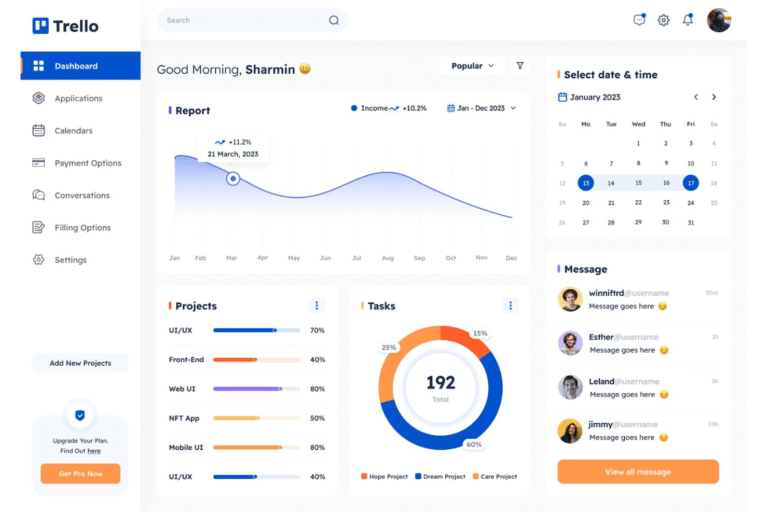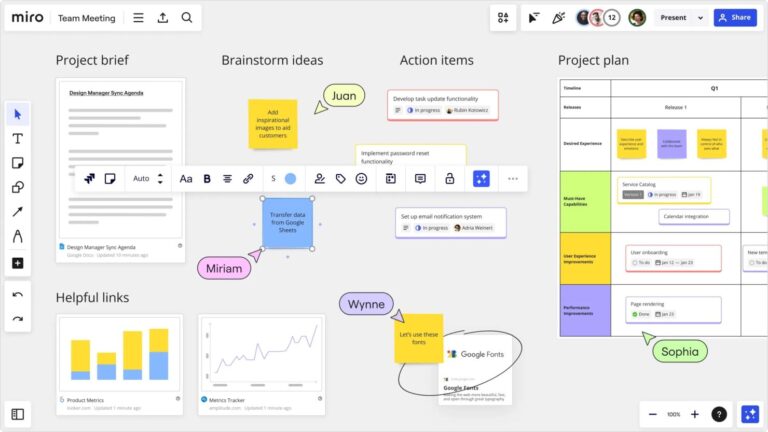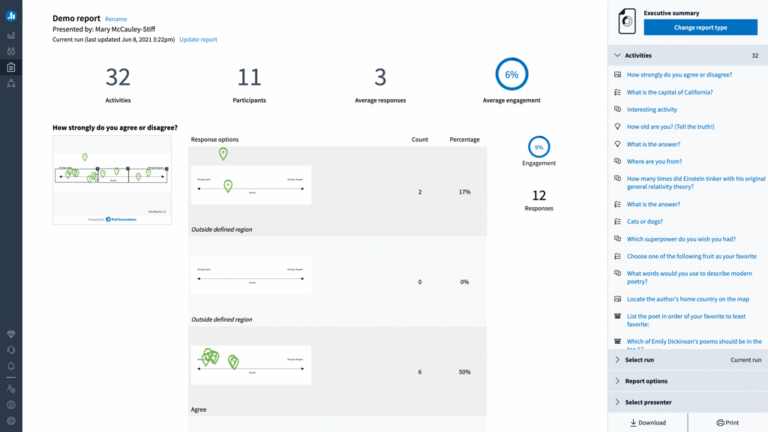Running a small remote startup means you need tools that keep your team connected without breaking the bank. You want collaboration suites that are easy to use, reliable, and packed with features to help your startup thrive—even when everyone is miles apart.
But with so many options out there, how do you find the right fit for your budget and your unique needs? This guide will walk you through affordable collaboration suites designed specifically for small remote startups like yours. By the end, you’ll know exactly which tools can boost your team’s productivity and make working together feel effortless, no matter where you are.
Keep reading to discover your perfect collaboration match!
Top Collaboration Suites
Choosing the right collaboration suite helps small remote startups work smoothly. These tools combine messaging, file sharing, and task management. They keep teams connected and projects on track without high costs. Below are some top affordable collaboration suites ideal for remote startups.
Google Workspace
Google Workspace offers email, cloud storage, and document editing. It allows real-time collaboration on Docs, Sheets, and Slides. Its simple interface suits small teams and remote work. The integration with Gmail and Calendar helps manage tasks easily.
Microsoft Teams
Microsoft Teams combines chat, video calls, and file sharing. It integrates with Office apps like Word and Excel. Teams supports group collaboration and meetings. It works well with other Microsoft 365 tools for productivity.
Slack
Slack focuses on instant messaging and team channels. It organizes conversations by topics, projects, or teams. Slack supports app integrations and file sharing. It helps remote teams communicate quickly and stay organized.
Notion
Notion is an all-in-one workspace for notes, docs, and tasks. It lets teams create databases, wikis, and calendars. Notion is flexible and easy to customize. It suits startups needing a single tool for many tasks.
Trello
Trello uses boards and cards to track projects and tasks. Its visual layout is simple and clear. Team members can add comments, attachments, and due dates. Trello helps remote teams manage work step-by-step.
Asana
Asana provides task and project management with timelines and lists. It helps teams assign work and monitor progress. Asana has automation features to reduce manual work. It fits startups that want clear task tracking.
Proofhub
ProofHub combines project management and team collaboration tools. It offers chat, notes, workflows, and time tracking. ProofHub keeps all project details in one place. It suits startups needing easy team coordination.
Clariti
Clariti integrates email, chat, and task management in one app. It uses AI to organize conversations and files. Clariti helps reduce email overload for teams. It supports smooth communication for remote startups.
Miro
Miro is an online whiteboard for brainstorming and planning. It allows teams to collaborate visually in real time. Miro supports diagrams, mind maps, and sticky notes. It works well for creative remote teams.
Key Features To Look For
Choosing the right collaboration suite helps small remote startups work smoothly. Focus on features that improve teamwork and save time. Affordable tools can still offer powerful functions. These key features ensure your team stays connected and productive.
Communication Tools
Effective communication is vital for remote teams. Look for chat, video calls, and voice messaging options. Real-time conversations reduce misunderstandings. Group chats and direct messages help share updates quickly. Notifications keep everyone informed about important events.
Task Management
Task management keeps projects on track. The suite should allow creating, assigning, and tracking tasks easily. Visual boards or lists help organize work clearly. Deadline reminders prevent delays. Progress tracking shows what is done and what needs attention.
File Sharing
File sharing must be simple and fast. The tool should support uploading, downloading, and organizing files. Version control avoids confusion with document updates. Access permissions protect sensitive information. Cloud storage ensures files are available anytime, anywhere.
Integration Options
Integrations connect your favorite apps to the suite. Linking calendars, email, and other tools saves time. Automated workflows reduce repetitive tasks. Check if the suite supports popular apps your team already uses. This keeps everything in one place.
User Interface
A clean and easy-to-use interface helps team members work better. Simple navigation reduces learning time. Look for customizable dashboards to fit your workflow. Mobile-friendly design lets your team work on the go. Clear layouts avoid confusion and mistakes.
Security Measures
Security protects your startup’s data and privacy. Choose suites with encryption for data transfer and storage. Two-factor authentication adds extra login protection. Regular backups prevent data loss. Compliance with industry standards ensures safe collaboration.
Pricing And Affordability
Pricing and affordability play a crucial role in choosing collaboration suites for small remote startups. Startups often work with tight budgets and need tools that deliver value without high costs. Many collaboration platforms offer flexible pricing to meet diverse needs. Understanding these pricing models helps startups pick the best option.
Free Plans
Many collaboration suites offer free plans for small teams. These plans usually include basic features like chat, file sharing, and task management. Free plans help startups test the software without spending money. They often limit the number of users or storage space. Despite limits, free plans can be enough for early-stage startups.
Subscription Tiers
Paid subscription tiers provide more features and higher limits. Tiers often range from basic to premium plans. Each tier unlocks extra tools like video calls, integrations, and advanced security. Startups can choose a tier based on their team size and needs. Monthly and annual billing options are common.
Cost Vs Features
Balancing cost and features is key for startups. A cheaper plan may miss important tools that boost productivity. More expensive plans offer better collaboration and support. Startups should evaluate which features add the most value. Paying slightly more can improve team efficiency and save time.
Discounts For Startups
Some collaboration suites provide discounts or special offers for startups. These deals reduce costs and make premium tools accessible. Startups must check eligibility and apply for discounts. Partner programs or incubators sometimes offer free access. Taking advantage of discounts helps startups stay within budget.

Credit: www.larksuite.com
Benefits For Remote Startups
Affordable collaboration suites bring many benefits to small remote startups. These tools help teams work together smoothly despite physical distance. They offer features that support communication, project management, and file sharing. Using such suites can improve daily operations and team dynamics.
Remote startups can save time and reduce errors with these platforms. They keep everyone on the same page and simplify workflow. This leads to better results and faster progress. Affordable collaboration suites help small teams compete with larger companies by enhancing their capabilities.
Improved Team Collaboration
Collaboration suites allow team members to share ideas and files easily. They offer shared workspaces where everyone can contribute in real-time. This reduces misunderstandings and speeds up decision-making. Teams stay connected through chat, video calls, and comments.
Enhanced Productivity
These tools help organize tasks and deadlines clearly. Team members can track their progress and avoid overlapping work. Automation features reduce repetitive tasks and free up time. Clear task lists and reminders keep teams focused on priorities.
Centralized Communication
All messages, files, and updates are stored in one place. Team members do not waste time searching through emails or different apps. Central hubs ensure that important information is easy to find. Everyone stays informed and aligned with project goals.
Scalability
Affordable suites grow with the startup’s needs. They allow adding new users and features without large costs. Startups can start small and expand as the team grows. Flexible pricing plans help manage budgets effectively while scaling.
Choosing The Right Suite
Choosing the right collaboration suite is vital for small remote startups. The right tools help your team work smoothly and save money. Focus on what your team really needs. Avoid paying for features you will not use. Consider how easy the suite is for everyone. A simple tool means less time spent on training. Check if the suite works well with apps you already use. This helps keep all your work connected. Testing the tool before buying is important. Gather feedback from your team to make a smart choice.
Assessing Team Needs
Start by listing the tasks your team does daily. Identify tools that support communication, file sharing, and project tracking. Know how many users will need access. Think about future growth too. Choose a suite that fits your current and near-future needs. Avoid overbuying or missing key features.
Evaluating Ease Of Use
Pick a suite with a clean, simple interface. Your team should learn it quickly. Avoid complex setups that slow down work. Look for clear menus and easy navigation. A tool that is easy to use boosts team productivity.
Considering Integration
Check if the suite connects with your existing apps. Integration saves time by syncing data automatically. Look for suites that work with email, calendars, and file storage. This keeps your workflow smooth and less fragmented.
Trial And Feedback
Use free trials to test suites before buying. Let your team try the tools and give honest feedback. Pay attention to their comfort and efficiency. Choose the suite that fits best with your team’s work style.
Free Collaboration Tools
Free collaboration tools provide essential features for small remote startups. They help teams communicate, share files, and manage projects without upfront costs. These tools let startups start working together smoothly while keeping expenses low.
Many free tools offer strong basic functions. They are perfect for teams just beginning to collaborate online. Choosing the right tool depends on the team’s needs and growth plans.
Best Free Options
Slack offers free messaging and limited app integrations. Trello provides simple project boards with unlimited cards. Google Workspace Free includes Docs, Sheets, and Drive storage. Microsoft Teams Free allows chat, video calls, and file sharing. Notion’s free plan supports note-taking and task lists.
Each tool has unique strengths. Teams can try several to find the best fit.
Limitations To Consider
Free plans often limit storage space and features. User caps restrict team size on some platforms. Advanced tools like timeline views or automation may be unavailable. Support options tend to be slower or self-service only. Security controls might be basic compared to paid versions.
Startups should check these limits before committing.
When To Upgrade
Upgrade when team size grows beyond free limits. Choose paid plans to access advanced features. Enhanced security and admin controls become important for data protection. Paid plans often include priority support and integrations. Upgrading helps maintain smooth workflows as the startup scales.
Monitor team needs regularly to decide the right time for upgrades.
Common Challenges
Small remote startups face unique hurdles using collaboration suites. These challenges affect productivity and team harmony. Understanding them helps choose the right tools for smooth operations.
Onboarding Remote Teams
Bringing new members into a remote team can feel tricky. Without face-to-face help, learning new software slows down. Clear instructions and easy-to-use suites are vital. Onboarding tools that guide step-by-step reduce confusion and speed up adoption.
Managing Multiple Tools
Using many apps creates chaos and wastes time. Switching between chat, files, and tasks breaks focus. Startups need suites that combine these features. One platform saves effort and keeps work organized. It helps teams track progress without juggling too many tabs.
Ensuring Security
Remote work increases risks to data safety. Startups must protect sensitive information from leaks or hacks. Affordable collaboration suites should offer encryption and access controls. Regular updates and backups help keep data secure. This builds trust inside the team and with clients.
Maintaining Engagement
Remote teams often feel isolated and lose motivation. Collaboration suites with chat and video calls keep connection strong. Tools that encourage sharing ideas boost involvement. Frequent check-ins and easy communication stop people from feeling left out. Engaged teams perform better and stay loyal.
Frequently Asked Questions
What Are Affordable Collaboration Suites For Startups?
Affordable collaboration suites provide budget-friendly tools that enable small remote startups to communicate, manage projects, and share files efficiently without high costs.
Which Tools Are Best For Small Remote Startups?
Popular affordable tools include Slack, Trello, Google Workspace, Microsoft Teams, and Notion, known for ease of use and robust remote collaboration features.
How Do Collaboration Suites Support Remote Teams?
They offer real-time messaging, file sharing, video calls, and task management, enabling seamless teamwork and improved productivity regardless of team location.
Are There Free Collaboration Tools For Startups?
Yes, many suites like Trello, Slack (free tier), and Google Workspace (basic plans) offer free versions with essential features suitable for small remote teams.
Conclusion
Affordable collaboration suites help small remote startups stay connected and productive. These tools offer essential features without high costs. Teams can share files, chat, and manage tasks smoothly. Choosing the right suite depends on your startup’s needs and budget. Many affordable options support growth and simplify teamwork.
Startups benefit from clear communication and easy project tracking. Using these suites keeps everyone on the same page. Investing time in finding the best tool pays off in better collaboration. Remote teams work smarter, not harder, with the right software.







